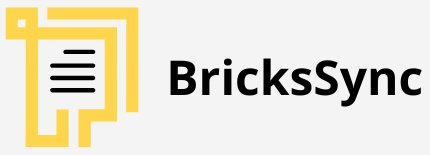This is a fluid document for now, which can and will change over time, but gives a great indication of what’s coming!
Completed
Complete Code Rewrite
Rebuilt from the ground up for maintainability and long-term growth.
Bricks 2.x
Fully tested with Bricks 2.x — no issues reported.
WP-CLI Support
Manage sync operations from the command line for scripting and automation.
Multisite Compatibility (New since v0.8!)
Seamless syncing across subsites within a multisite network (imagine a Bricks powered master theme, usable by multiple subsites!)
- BricksSync now fully supports WordPress Multisite installations. A dedicated Network Admin interface allows super admins to manage global, group, and per-site configuration for all subsites from a single dashboard.
- New “Sites & Effective Configuration” tab displays all subsites with their effective (inherited/overridden) configuration in a unified table.
- Site-specific overrides can be set and visualized for any subsite. Overrides are clearly indicated with a vertical badge at the start of each row.
- Reset button; Instantly remove site-specific overrides and revert to inherited configuration. The UI updates immediately after reset.
- Group configuration: Manage shared settings for groups of sites, with inheritance logic for network > group > site.
Bricks Components Support (New since v1.1, expanded in v1.2)
Add full support for Bricks Components. There is a dedicated tab for Components in which you can import and export components to and from json files individually.
Direct Transfers (New since v1.2)
Send and receive templates, components and settings directly between WordPress sites without manual export/import.
Planned enhancements
none yet…
Ideas
Cloud Dashboard (BricksSync Cloud)
A hosted dashboard to manage and monitor all connected sites from one place.
Live Template Preview from Remote Site
View and import templates with a live preview, fetched remotely.
Template Marketplace Integration
Directly import from public or private marketplaces.
Role-based Access Control
Let developers control who can run syncs, configure settings, or import data.
Deployment Hooks
Trigger syncs as part of WordPress deployment pipelines (WP Engine, Kinsta, etc.).
REST API Template Sync Endpoints
Expose BricksSync via REST for custom integration and dashboarding.
Webhook Support
Trigger actions via webhooks when sync operations occur (e.g., notify Slack or CI/CD).
Improved Logs & Sync History
Track when syncs occurred, what was synced, and any issues encountered.
Host+Client Mode / Remote Control
Lock down Bricks admin on client sites and sync from a “master” control panel.
Hidden/White-label Mode
Option to hide BricksSync from non-admins or rebrand it for agency use.
Scheduled Syncs
Define specific times for syncs (e.g., nightly at 2AM).
Staging Awareness
Built-in logic to treat staging/live/local environments differently.
Notification System
Send admin emails or dashboard alerts when syncs fail or succeed.
Global Exclusions
Prevent certain templates or settings from being synced accidentally.
Rollback Support
Keep previous versions of templates/settings and allow rollbacks.
Advanced Sync Rules
Define which templates/settings sync, by type, tag, or name.
Sync Profiles
Save and reuse configurations (e.g., “Local to Staging”, “Client Live Backup”).
Third-party & Ecosystem Integration Ideas
ACF & MetaBox Syncing
Optional syncing of custom field groups alongside templates.
WPML/Polylang Compatibility
Handle multilingual template variations during sync.
GitHub / GitLab Integration
Push/pull sync data directly from repos, ideal for headless or CI/CD setups.
Remote JSON Storage (S3, FTP, REST API)
Support for external paths or APIs to avoid file access constraints.
ACSS, Advanced Themer, BricksForge, CoreFramework, etc support
Support for other Bricks plugins/expansions
